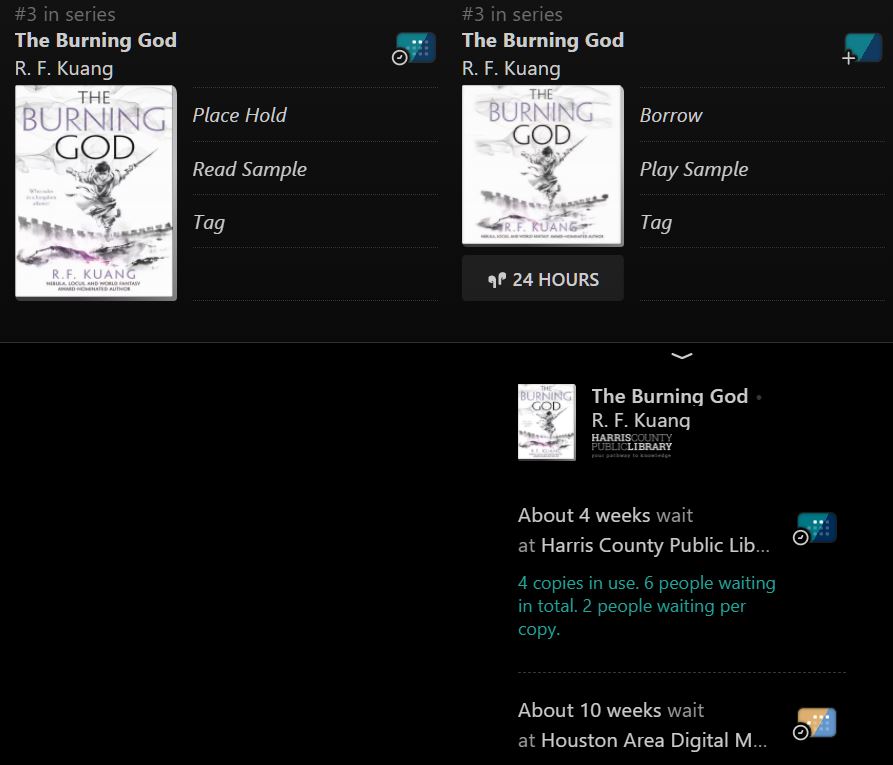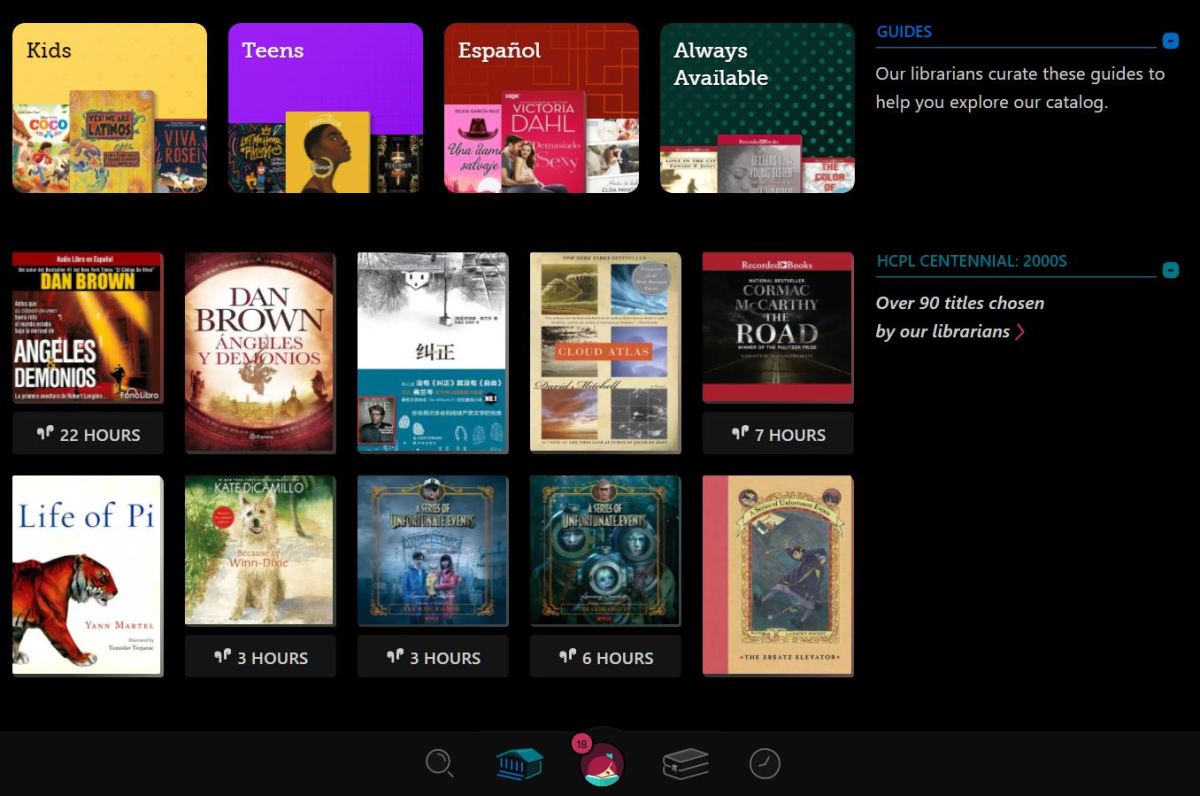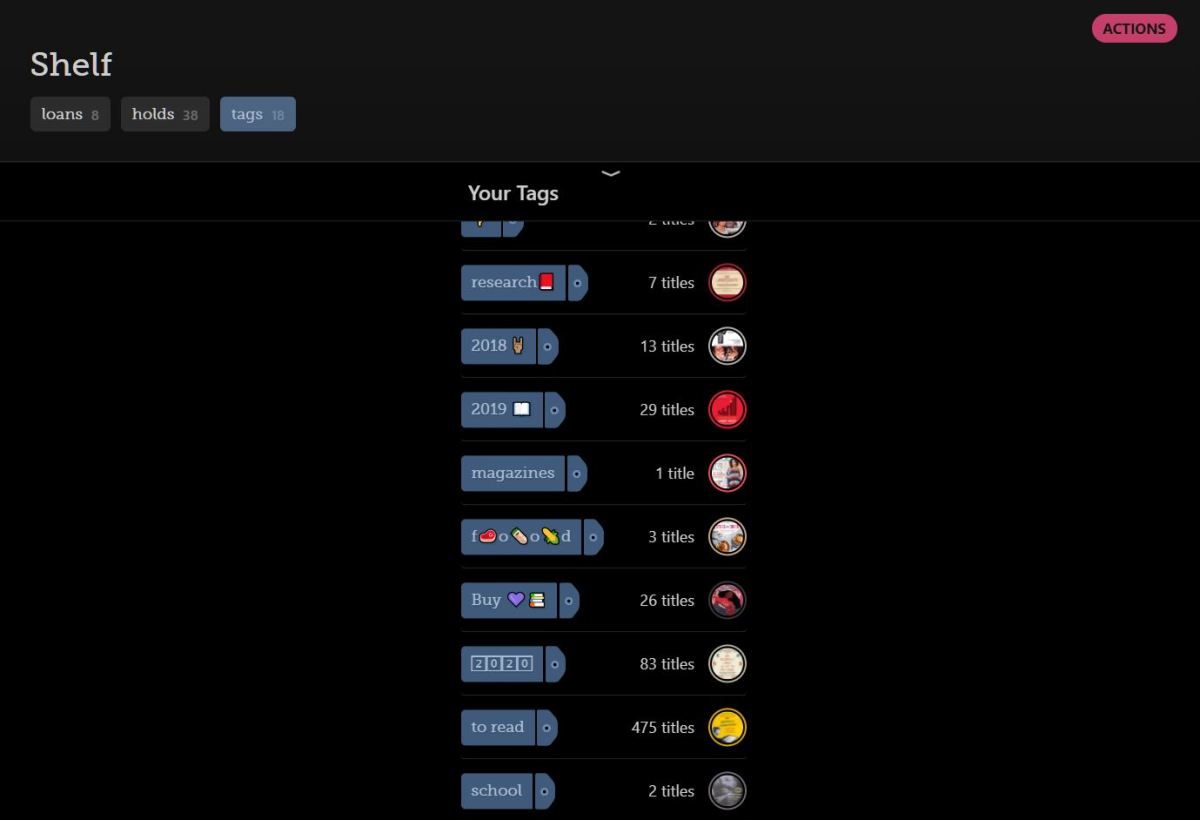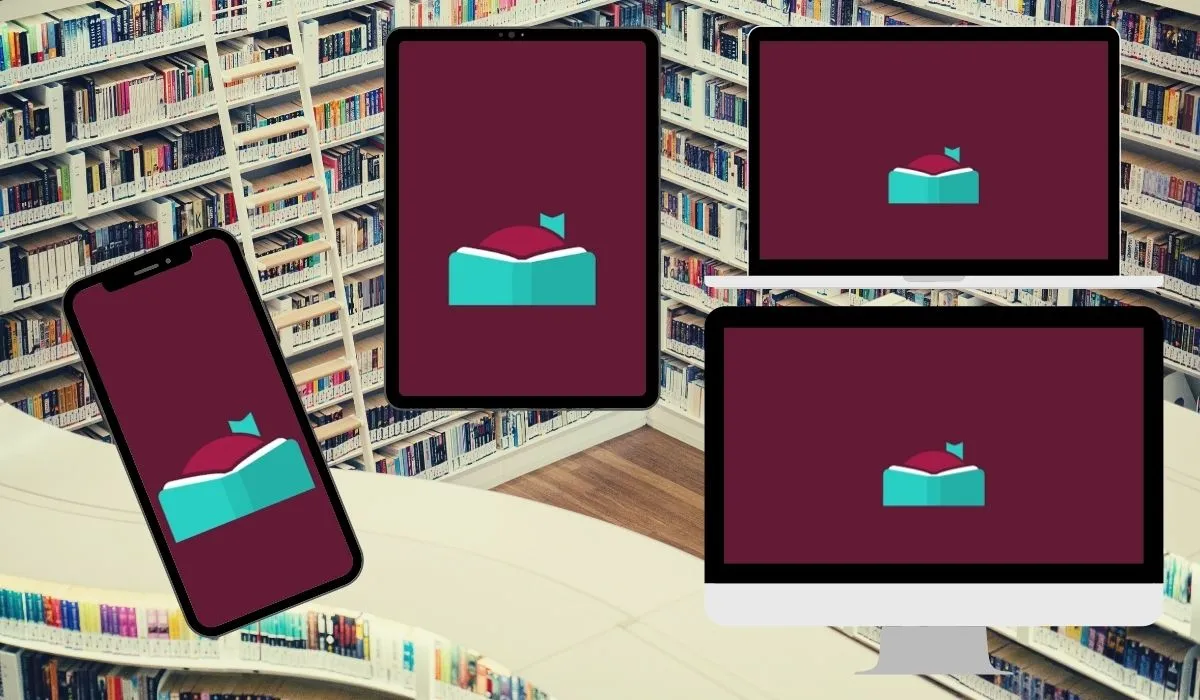In my gushing over B.B. Alston’s Amari and the Night Brothers, I mentioned how Libby re-sparked my love for reading. Owned by their more well-known parent company Overdrive, Libby is simply a free reading app that harnesses the power of your library card to access a wide selection of ebooks and more from actual libraries. In this essay, I will tell you five reasons why, if you have a library card (or don’t), you need this app in your life.
Note that I won’t really discuss the collection available on the app because that really depends on what your library holds.
1. Using across devices and accounts.
In the app, you can have multiple library cards (five max), and switching between them is two clicks away. I’m signed into Harris County Public Library Card (HCPL) and my Houston Area Digital Media (HADM). The cards give me access to ebooks, audiobooks, graphic novels (comics and manga, too!), and magazines on the app. This doesn’t include the DVDs, books, and other services available in the library’s physical location, so don’t worry about apps making libraries obsolete. The in-house resources are vital aspects of community education, health, and safety.
Between both of my cards on Libby, I can hold up to 45 books (15 for HADM and 30 for HCPL) and 40 holds. Never go above 7 books at a time unless you have no other hobbies.
For holds, I recommend staggering them out so you don’t receive them all at once. If the book is not available at the moment you are looking at it, click on the calendar to see what the wait time is. It can be anywhere from “available soon” (indicating the next 24 hours) or over six months (I rarely see this). Even if you forget, you can always set them to be delivered later if you are not ready, and they appear on your shelf. The app doesn’t automatically check books out. You have to accept the titles.

Also, anywhere you can access the free app (Apple, Android, Windows, and desktop browser), you can pick up right where you left off. I’ll be listening to The Death of Vivek by Akwaeke Emezi while working on Photoshop on my computer, pause it, and pick it up again on my iPad as I do the dishes in the kitchen. Loans, notes/highlights, bookmarks, and progress sync across all devices.
In the before-times (pre-Covid-19), I used to listen to about 40-60 minutes a day while driving to work, school, and general errands. Buckling my seat belt, checking my mirrors, setting the AC correctly (I live in Texas, y’all), and hitting play on Libby was a part of my routine. I don’t like to use the data it takes to stream audiobooks and comic books (my go-to choices when not home), so I download them unto my device while on wi-fi.
Since the pandemic began, I have still used it a lot (actually more). I’m not the only one, because reading apps and bookstores have reported an increase in reading since the pandemic began. For cleaning/chores, showering, hair routines, cooking, drawing, and all parts of the moving process (from packing to unpacking), I use Libby. The only reason I don’t use it for yard work is because I really need music to get me through that hell.
2. New ways of browsing
You can easily go through a Libby-spiral (like going down a Wikipedia hole) finding new books to add to your To-Be-Read pile. Through Libby, you can search for book via subject, date added, format (ebook, magazine, etc.), language, intended audience age, what the title is supported by other than Libby (EPUD, PDF, Kindle, etc.), and availability. If you are looking at a title’s page, you can also search other titles linked by editor, writers (including others who may do the forward), narrators (if applicable), publisher, and imprint. I have found many of my favorite books through this method, like Sara Collins’ The Confessions of Frannie Langton.
Something very cool that doesn’t warrant its own section on this list, but is useful nevertheless, is the “Skip-the-line” section. Marked by a green shamrock (for good luck), these books come up randomly near the top of the home page and mark books available now. These books are usually books that are very popular, and you can check out these titles quicker, but with the caveat to only borrow the book for 7 days instead of the standard 14. This keeps titles in quick circulation.

Libraries also create curated selections (monthly, I believe), just like they do in the physical locations. This can be for a specific time of year like Women’s History Month or PRIDE. Sometimes, they are region specific, like how HCPL highlights Lone Star 2021 finalists. HCPL has also highlighted popular books from each decade all year as they lead up to their centennial. Last summer, both library cards featured lists to help read against racism.
3. No late-fees, or any fees for the user
No late fees is a big one. Late fees can prevent access from other library resources, and this is why some use things like “can the fees” drives. In these drives, every canned food item donated to the library (then given back to the community) results in a chip away at your total library debt.
Who has library debt? Me. At one point, it climbed to about $170 because I checked out a lot (knowing me, probably the max amount) of books, CDs, and DVDs in one visit during a summer in junior high. My mom went from taking my siblings and I biweekly to skipping out for a few weeks. Thus, those fees racked up real fast. She was a single mother, so I don’t blame her for being too busy to take us, but it goes to show that you can return EVERYTHING to the library and sh*t happens. With Libby, there are no late fees because the book is automatically returned on the due date/time.
This is a blessing with an ounce of a curse. For example, I had R.F. Kuang’s The Dragon Republic (sequel to The Poppy War) checked out, and with just 4 hours left on it (that book is about 24 hours long), it was returned. My partner and I were reading it together, and not only did I get behind, but I then had to wait 4 weeks to get a copy back through Libby.
4. Tags
Other than browsing, my favorite feature to use is the tagging button. Here, making a tag of text, numbers and/or emojis, it can be applied to any number of titles in Libby. I have a tag just for TBRs, a tag based on when I read it (2018 forward), a tag for if I like it (thumbs up) or disliked it (thumbs down), and even one for books to buy.
These tags are specific to you and won’t be seen by other users. However, when switching between library cards, the tags apply to both. So, if I tag Dune by Frank Herbert with my HADM card, the tag will also show up if HCPL has a copy, too. (They both have multiple copies, I assure you.)

5. Charitable contributions
Overdrive teamed up with The National Forest Foundation (NFF) for National Library Card Sign-Up Month. Created by the American Library Association, the month acts as a driver to inform people of the free resources (already funded by taxes) available at their local library. For 2021, Overdrive committed to donating 50 cents (capped at $10,000) per Instant Digital Card created between Sept. 1-20 on Libby. While my HADM already existed because I signed up in person years ago (a card available to all Texas residents), my HPCL library card was created when I joined Libby through the instant digital card tool.
In a press release about this initiative, the Reforestation Director Mindy Crowell at the NFF said, “We are pleased to partner with OverDrive on this outstanding initiative that promotes public libraries and their mission to promote books, reading and environmental sustainability.”
Planting trees is not going to stop climate change as people like to believe, but it does help restore and maintain important ecosystems. The NFF doesn’t just throw trees around willy-nilly; they go in and make sure it is not an invasive species or anything and plant based on need of area.
—
The app is not perfect, though. On the user end, I have talked to my local library, and it takes longer to update when you put a request in as opposed to their other platform. (They use Axis360.) Also, there is a complex, but important debate over the long term power Overdrive will have in a market currently dominated by Amazon and the “Big Five” publishers.
Regardless of it’s few shortcomings, the app is great for helping people better access their local library. I’ve used it for years and convinced several people IRL to take the risk-free plunge. All of them came back loving it and finding themselves making more time to read.
This is the perfect time to sign into Libby and directly contribute to the campaign Libby is holding through Sept. 20 for National Library Card Sign-Up Month.
(image: Alyssa Shotwell and Libby/Overdrive)
Want more stories like this? Become a subscriber and support the site!
—The Mary Sue has a strict comment policy that forbids, but is not limited to, personal insults toward anyone, hate speech, and trolling.—










Published: Sep 8, 2021 01:37 pm